Ok, another blog. I guess I’ll write about some pacific place or other, but for now it’s rather undefined. (See that pun? Huh? Huh? Funny right? I am master of all puns!!!)
Well, ok then, let’s get started on today’s subject; Makemo. But first we need to enlighten you on the very last antics in Raroia. Or actually, we need to inform you on atolls…
Every atoll has one or more passes, as explained in my last blog that was about what an atoll is. But for those of you who are still unenlightened, I will put in a better effort since my previous description wasn’t very good.
An atoll is a island that got pushed up by a volcano long ago. The island however, started sinking slowly, but take into account that the sinking was a slow process. So, although the difference might be visible every year, it’s still not major. While the island stands tall and elegant, coral and likeminded animals grow on its edges, forming a sort of a fringe, you could say. When the island sinks, the little coral fringe doesn’t. It stays behind. So gradually, as the island sinks away through the decades, a coral barrier surrounds it. This forms a sort of lagoon area between the island and the open ocean.
The coral fringe isn’t equal all around the island, so in some places it might actually stick out of the water, while some other places might only feel the wind’s kiss at low tide and so on. Over time these higher bits pick up bird poo and coconut husks which form dirt for coconut trees to grow on, which form more of a basis for more dirt to get stuck and so on. I’m not sure about the details, so don’t quote me on this when talking to a person who knows all about it. To someone that knows nothing about it you would sound smart but to an educated student of atolls you’ll sound terribly lost on the road of knowledge.
Anyway, this is what I understood of it and I must have at least a correct idea of the thing, otherwise my siblings, who were paying attention, won’t let me post this. So eventually, when the island is all under the water again, the coral fringe still remains where it was. But now, at some places, the shallower part of the coral fringe has formed little thin islands. Thus the finished product of the atoll is a ring of little thin islands with some breaks in-between them. What happens to the coral fringe that doesn’t stick out of the water and become island? It stays under the water as far as I can tell, but it’s often not very deep, or at least not deep enough, for say, Shang Du to pass through. So, some atolls aren’t populated or ever get visited because the sea is constantly breaking on it from the outside and there’s no pass through which to get inside.
Some atolls however, have had their passes deepened so that larger vessels can travel through to the inside.
Another, and very important, detail of the atolls, are the tides. Now in the middle of the ocean it doesn’t really matter what the tide is doing, right? Well, I never really thought about it, but the tides are still there and that becomes apparent in the atolls. Because when the water level lowers, the water inside the atoll flows out, causing strong tides flowing out of the passes. And then vice versa, when it’s the other way around. So, when going through the passes it’s very important to know which way the current is going and to plan accordingly as it is quite hard to go against the tide.
Having explained all that, I will now proceed to the story.
In Raroia, there was only one pass that was deep enough for us to use. The Kon-Tiki island I told you about in my last blog, was on the opposite side of the atoll. What we did was go into the atoll and sail all the way to the back.
I must also mention that in the middle of these atolls there are lots of coral heads that don’t quite stick out of the water but that are very shallow. Its fascinating to think that maybe they were once the tips of mountains. But who knows? Anyway, they’re called bommies by all the sailors we’ve met and presumably everyone else who knows they exists except maybe some scientists who obviously use the scientific name. These bommies are quite dangerous and stealthy. At certain times of day it’s almost impossible to see them but even when the lighter patches of water is visible you still often need to keep a vigilant watch for them.
Despite these obstacles, we managed to get to the other side safely. But when we wanted to leave again, the engine wouldn’t start, we tried everything. In the end it was starting to get late, the sun was getting closer and closer to the horizon. Time was running out. To my disbelief Dad decided that we needed to leave anyway. The wind was blowing in a favourable direction and we could still make it through the pass before sunset and with an outbound tide. So we were off.
We sailed across the atoll, my Dad filled with stress at not having full control of the boat to better avoid bommies and avoid beaching or something. “At least we have a steel boat.” This is a comforting line we use often when doing something risky like this.
God was with us, and we didn’t beach. We reached the other side in time for it all, but it was wind over waves. Which means that the wind was blowing one way, and the current is going the opposite way. When this happens, the waves tend to get larger than they would in normal circumstances. They also tend to be unpredictable and confusing. The wind lessened as we approached the pass because of the land blocking it. This made us lose the little control we had of the boat. We were now completely in God’s hands. Where we belong.
It was getting harder to see now and everything became more like dark moving silhouettes as the sun moved further beyond the horizon . I wasn’t in the cockpit at the time, but I’ve got a pretty good idea as to what it was like. Almost as if small mountains had a little fun by pushing us around, coming up from below to surprise us as we tried to dodge them. But thanks to God we made it through safe and sound, bound for our next destination and the real subject of the story. The entry into Makemo.
So we had two choices. Sail straight to Tahiti past all the atolls that we wanted to see and had been the real motivator for the trip. The lonely unreachable diving spots. The Paradise on the other side of the world. Or we could sail from atoll to atoll, which would obviously be the more dangerous option but it had the more desirable destinations. After all, didn’t they just sail everywhere in the olden days? They didn’t have engines back then, couldn’t we do it too? Guess which option we went for. Yeah, the atoll one.
We arrived in Makemo, this time anticipating the lessening of wind as we approached the pass. But we had a secret weapon now. Our dingy was already launched and ready to help. The Jib (front sail) was set strategically to help us along when it came to it. The tide was heading in so that would help us along as well.
When we turned into the pass there was slight hesitation and we did so a little too late. We were too close to the reef for comfort. My Dad was on the dingy, my Mom at the helm. The rest of us were just hanging around, ready to obey any order that might come our way.
My Dad wanted to abort right then, but the current was stronger than we had anticipated and the rope connecting the dingy and the boat wasn’t the right one for towing. We managed to turn the boat around to face outward but the sail had backed and the little wind that there was, was pushing us further in. There was a lot of shouting as my Dad tried to get us to roll in the jib and Marike was frantically trying to tie the right dingy towing rope correctly to the boat. Franci and I eventually got the sail rolled in, but it was too late. The current was already taking us in… backwards. It was too late to try and tow the boat, we couldn’t abort anymore, but we could at least try and pull the boat so that it was facing forward again.
Marike and my Dad swapped places so that he was now on the boat and she in the dingy. I was handed a buoy to fend us in case we ran into the channel marker. We could literally see the cut off point of the canal right next to the boat, it wasn’t above the water, just a little too shallow for Shang Du. I was looking down into the water at the reef, watching the fish. I could identify them without a mask and everything. I remember watching the shore and measuring the distance, contemplating what we would do if we beached. I could see the black tip sharks swimming on the reef, their fins sticking out of the water as they were swimming over a very shallow bit of coral. I was relieved that I didn’t have to be afraid of them, I would have been terrified a year or two earlier. I just kept praying for the Lord for His will to be done.
Marike said that if anyone asks what has been the most scary part of your sailing trip so far? She will always, without a doubt, say “Going through the pass in Makemo”. But for me, it was a time of wonder. It’s as if I was sitting in a bubble of peace amongst the sudden storm of stress that seemed to have enveloped the rest of my family. I remember looking into the water with wonder, admiring the wonderful creation of our God. The water was so clear and beautiful, I couldn’t wait to jump in for a snorkel to get a closer look at God’s beautiful creation.
Marike who was in the dingy tried to push and pull, but all she could achieve was spinning the boat.
When we finally arrived Mom and Dad went to shore to just check things out a little. It was a Friday. They had to take a funny route to the dingy dock because of some shallow coral, going past the only other boat there, they were hailed over by the French man living there. He was a really big blessing to us. He told us that he knew of mechanic living on the little island who was building himself a boat. A nice yellow speed boat. He’s the guy that is maintaining the huge generator for the little island. We said we’d wait till Monday, but the French guy insisted that we go ask the gentleman at least. In the end, the mechanic, the French guy and the mechanic’s assistant came on board. Then they started working on the engine. It was some time in the afternoon by then. They worked until late and came back the next day and the next without any hesitation. Every problem would be discussed several times. First between the mechanic and his assistant in their native Polynesian language, then again in French with the French guy who then interpreted it for us into English after which my Dad and Marike would translate the engine talk into Afrikaans as they explained the complicated bits for us who do not speak mechanic. I understand it a lot better now than I used to, but can still not speak it myself.
The island was very small. We never really even explored it, we just swam and dived. We could do this after God blessed us with the wonderful mechanic who fixed the engine. It turned out to be the same problem as it was in Rio when we had to lift our engine out… Sea water had leaked in and made some stuff rust tight so that they couldn’t spin and do their thing, thus breaking the engine. However, other than in Brazil, we caught the problem in time and they could fix it before the engine was gone for. If we had gone on sailing between the atolls, or even just done the longer crossing to Tahiti, the engine would have seized entirely and we’d have had to replace it. But God is gracious and blessed us greatly. It’s amazing how he works in our lives. When going though the passes without the engine the question “Why, God? Why me? Why now?” always comes up. It tends to do that in the hard times, but God was gracious and let us get it fixed in time despite the stressfulness of the situation. If we hadn’t had engine problems we wouldn’t have met the French couple with whom we could share the gospel. So it’s always a question. Why does God put me through this? Our problem is that we’re too centred on self, and not others. God could have put us in that situation for that explicit reason to reach out to those people, but if we’re too centered on self than we won’t see those opportunities as a God send.
So instead of asking Why? We should ask How? How can I glorify the Lord through this situation?

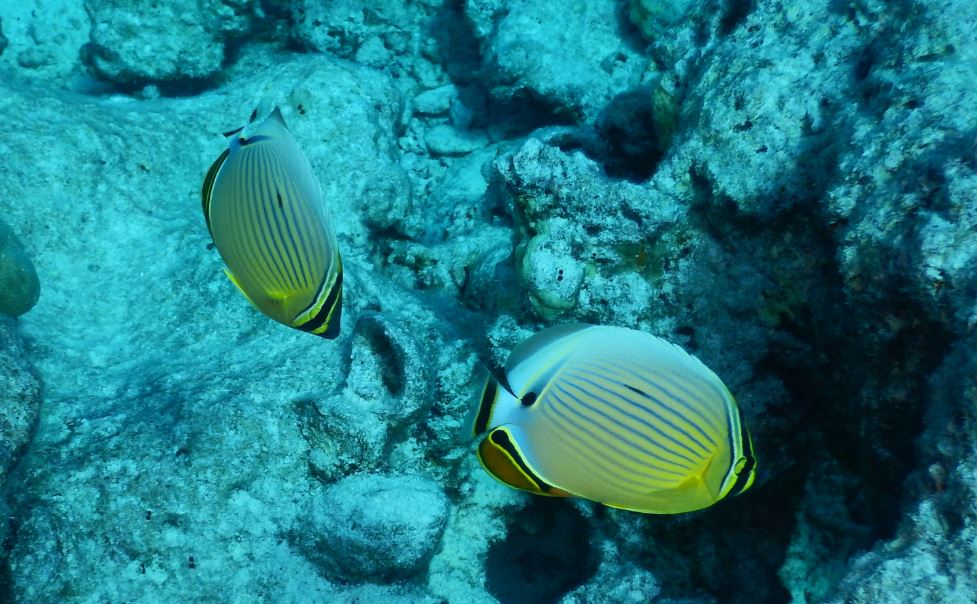
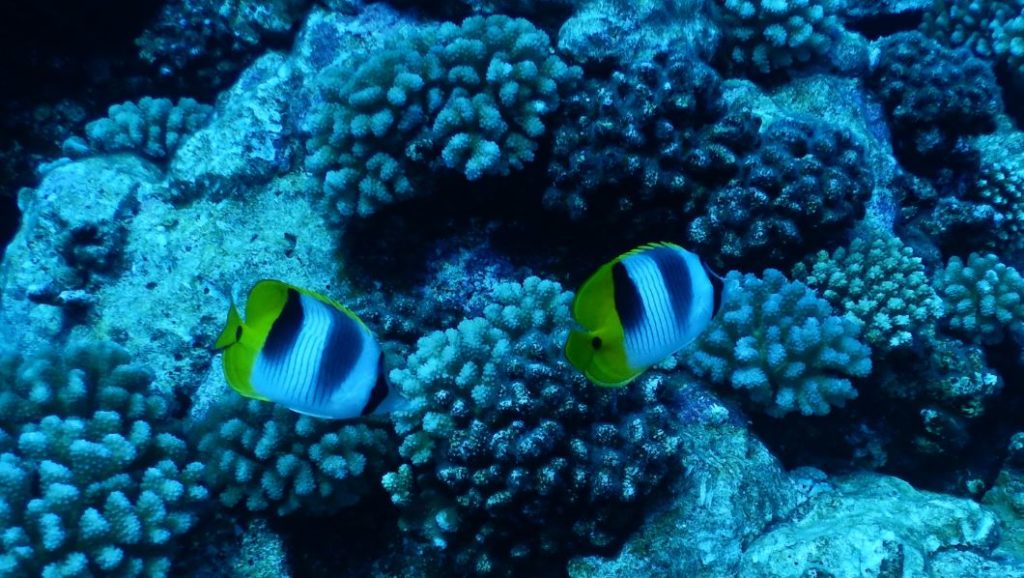
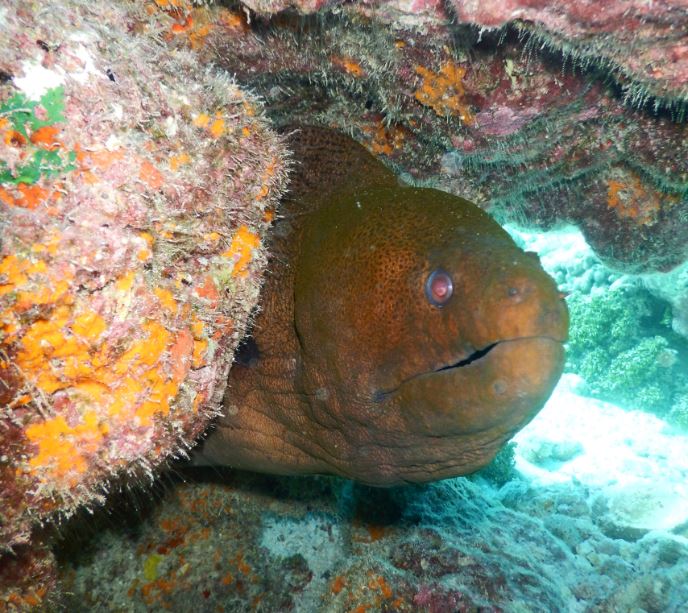
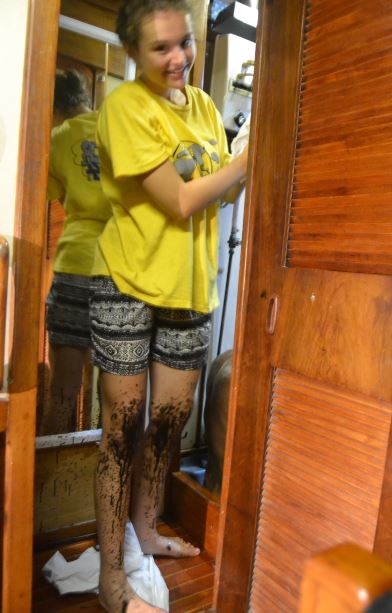
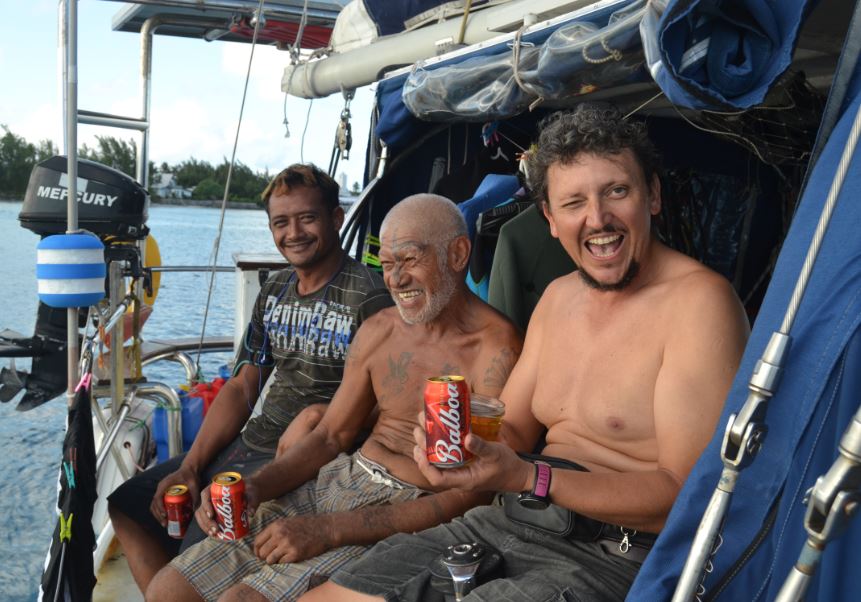
Recent Comments